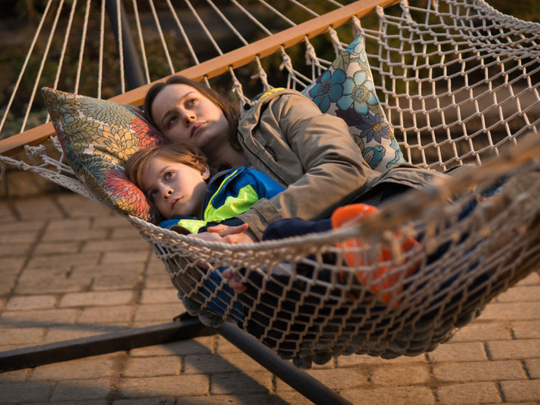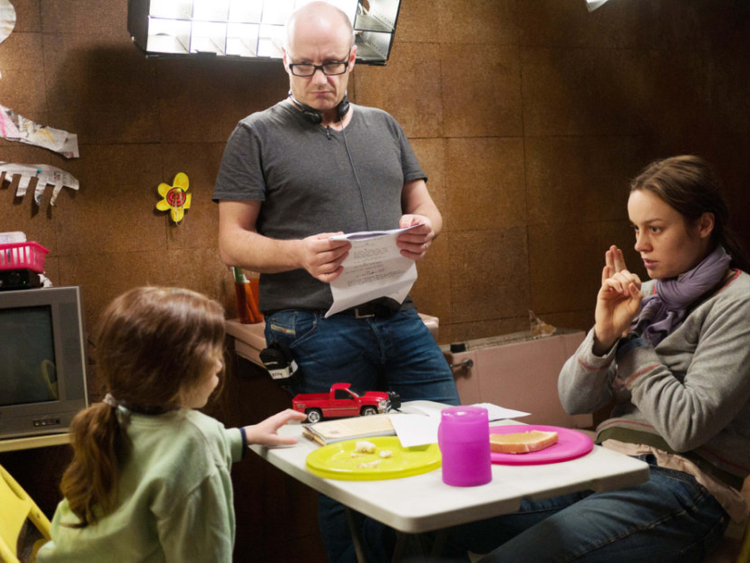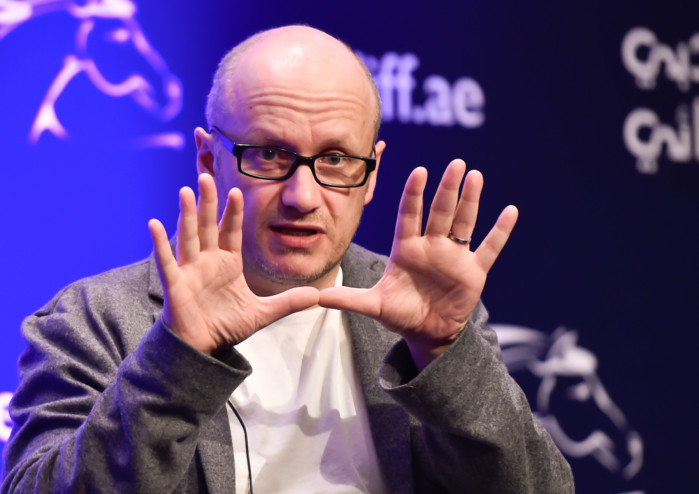
Oscar-nominated Irish filmmaker Lenny Abrahamson says it’s all about the vision.
The director of Room, which opened the Dubai International Film Festival (Diff) last year, spoke extensively about his films, from Adam & Paul to Frank, at an event during the festival this week.
“What I’ve learnt early on is, as a director, while your job is to have vision but, that vision, needs to be flexible. It should be a strong emotional stylistic impulse but not a rigid story board in your head because if you do that as a filmmaker — and I do see a lot of that with first time filmmakers,” said Abrahamson during the session. “When you do that you are cutting off stuff that comes from an actor naturally. You are then directing an idealised version of the movie in your head and not working with the material in front of you. The job for me is to be there and watch what’s happening and allow it to affect me which may make me see a scene or shot differently”.
Room, a story about a woman and her son being imprisoned by the father of the child, he says, is probably the “most optimistic thing” he has made.
“There is a message in everything I’ve done that human beings are worth something, no matter who they are. In this film we have characters that are fathomable but there’s also much allegory, a positive statement of what love is and what it is to grow up. The reason I was drawn to it was that my son was four when I read the novel and the film was like a love letter to him. So it differs a bit from my other movies as I think it’s ultimately a celebration. But at the same time it was an extremely challenging film”.
Setting standards with every film he does, whether it be the dark Beckett-inspired Adam & Paul; or What Richard Did, a film loosely based on a real life incident; or the aspirational Frank; or Garage the story of a loser in life; and not to forget the Oscar-nominated Room, Abrahamson says he can’t afford to “think about that because you’d lose your sleep then”.
“I do remember feeling the pressure with Room because it was a famous book people loved. You know that they are going to watch this and if they think you’ve wrecked their book, they’ll hate you forever for that,” he told Gulf News tabloid!. “I am very aware of the fact that everyone would want to see my next film and people are sitting there with their pens ready to say ‘Aah a bit of a disappointment after Room’. I think all I can do is what I’ve always done — which is to do the things I’m passionate about and hope for the best”.
Each of your film has a diverse script and characterisation. Tell us what attracts you to a story.
It’s such a tricky question because I have this conversation with a lot of people I work with and the answer is it’s not the subject but a depth and complexity to the central characters, where it feels like there’s something that you can taste but don’t fully understand. What I’m never interested in are scripts where it’s just an exercise in creating tension for tension’s sake or it’s just a story where in the end we learn who we are — you know a conventional [story]. It’s really about something that will take work and I will understand something that I haven’t already understood.
At the same time, your films do not fall under the conventional, commercial cinema. Have you found it a challenge to have your films funded?
I was lucky. In the first film, they had just recreated the National Film Board in Ireland which gave people an opportunity to make a first film that wasn’t entirely commercial. That allowed us to do a movie like Adam & Paul and because that was a success — actually, a bizarre commercial success in Ireland — it made it easier to make the second film. And when that film went to Cannes, you already started building a reputation as a filmmaker. Garage wasn’t commercial but it did have a life and it did reflect on the people who funded it, and it got awards. If you are prepared to work on a lower budget then it remains possible to have a voice. I’m not making [films] to be serving the conventional film industry. Same thing with Frank, but Room was actually the big commercial success without being conventional in shape and I think I will continue to make such films.
There was news that while every Hollywood film gets a show in 10 European countries, European films get about 2.5 — some don’t even leave the country…
Yes, it’s true. Hollywood is a kind of global brand. It’s like if you are Louis Vuitton, your stuff will travel everywhere. But if you make beautiful bespoke handbags somewhere, it’s hard to get them out. But there’s plenty of American films that don’t travel either. If anybody says why can’t we just make the really good [films]? Yes, it would be great but nobody knows the answer to how that can be done. It’s getting harder for sure to distribute good cinema, certainly in a theatrical environment. But other media, such as VOD, is improving and that’s good. What’s worrying is box office results. Even studios in Hollywood are making fewer and fewer films but with bigger [budgets].














